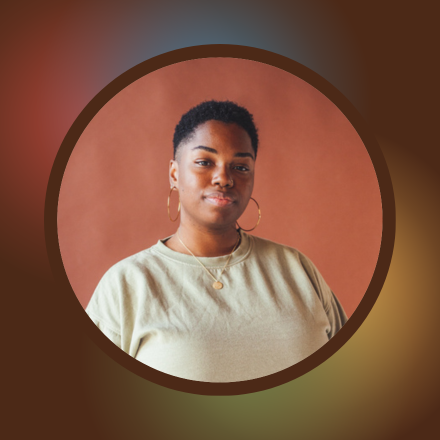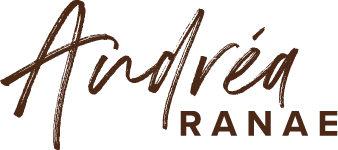I grew up reading the teen versions of some of the most popular personal and professional development books of our time. How to Win Friends and Influence People for Teen Girls. Rich Kid Poor Kid. 7 Habits of Highly Effective Teens. The Secret to Teen Power. I had a life coach for a Dad and I learned to question everything (to my parents’ and teachers’ dismay).
I wanted truth, motives, understanding, and reasons for why our world is the way it is.
As I grew older and asked more questions, I became obsessed about the social and environmental injustices of our current and past existence. In 6th grade, it was the Holocaust. In 10th grade, it was Human Trafficking. I’ve studied up on body shaming, the Trans-Atlantic Slave Trade, the Israeli-Palestinian conflict, gun violence, modern day racism, reproductive rights, animal rights, colonization etc.
I’m no expert in any of it, but as I’ve learned more, my heart has continuously broken open.
The thing that has been the most frustrating and concerning for me is how seemingly disconnected the personal growth industry is from the work of social justice even though the idea that “if you change your life, you can change the world” is deeply embedded within so many popular self-help brands and communities. Justice work and growth work collided within me like two cars crashing into each other at 70mph. It still does. The cognitive dissonance was too real and it felt like I was two different people. The coach and the activist.
My first blatant experience of this was in my second year of college, where I was forced to come to terms with the rampant police brutality in the United States. Within a span of weeks, this country was told that neither families of Eric Garner and Mike Brown would receive justice for their murders. I also found out about the unjust murders of Aiyana Jones and Rekia Boyd – no justice. And it was right around this time when 12-year-old, Tamir Rice, was killed on-sight while playing in the park. This was the first time I really allowed myself to feel the deep rage and grief that comes along with being black in the US. For weeks, in the midst of finals season, I spent most of my time crying and on social media staying up to date on the latest information.
On Twitter, I was following many activists as well as coaches and healers. I would look at my timeline and see updates from protests, news articles, commentary on this pressing issue and sprinkled in between, I would see quotes like:
“For every minute you remain angry, you give up 60 seconds of peace of mind.” // Ralph Waldo Emerson
As if nothing was happening right outside their doors. As if my anger about these injustices wasn’t as important as my peace of mind. As if the reason for my anger wasn’t real or valid. As if everything would be okay if I’d just let go and think positively.
The blaring silence I witnessed, from the very people who say their work is for the good of the world, was stunning.
That silence has led me onto a path that I’ll never get off of. A path that encourages and supports the making of noise, the questioning of the aspects of our world that is not up to our standards and the disruption of systems that do not serve us as a whole.
To the coaches, healers, guides, leaders, and overall do-gooders of the world who don’t want to bring politics into your work, consider this:
Your work could bring massive sustainable change to many lives, families, and communities, but it won’t if you don’t critically look at the social context that you’re working within.
The problems you help solve for your clients are most often symptoms of a much deeper and widespread systemic problem that we must get to the root of. You say you want to change the world, but what is it, in the world, that you want to change? You’ve got to name it to tame it.
Our socioeconomic and environmental issues affect every single one of the people you work with either actively or passively.
As you’re working to create change in our world, your silence about these issues actively works against you. Your political neutrality says, “I’m totally comfortable with these injustices. Let them continue.” (And if you find yourself being very vocal about some issues and MIA about others, ask yourself why.)
Learning to take personal responsibility over your own life does not absolve you from your social responsibility.
Your isolated happiness and success does not serve anyone, including you. We are not meant to thrive in isolation. We need each other to do well. If there are people down the street from you that are not well, you’re not well. If there are people across the world that aren’t well, you’re not well. If our Earth is not well, we are not well.
Self-love and self-care will not change the world if we are not also loving and supporting each other. Your personal freedom will not change the world unless you acknowledge the backs on which you stand in order to have that freedom.
Who’s freedom gets taken away so that you can experience a liberated life? Who suffers so that you can practice self-care? If you’re free and others aren’t, are you really free? What is freedom if only a few have access to it?
One of my favorite quotes comes from an Aboriginal activists group from Queensland in the 1970s, where they say:
“If you have come to help me, you are wasting your time. If you have come because your liberation is bound up with mine, then let us work together.”
Read that again and let it sink in a little bit more.
I write this because my liberation depends on you and yours depends on mine.
And so I have two questions for you:
- What change do you really wish to see in your world?
- Is your work and/or life supporting that change?
Interested in amplifying the impact of the work you do as a coach, healer or leader? I have something really exciting coming up called Coaching as Activism: A Responsibility Forum.
Figuring out what’s ours to do in times of tremendous pain and injustice may not be easy, and yet it is necessary. If you want to explore this for yourself and your work, I’m offering a space for us to grapple with and answer the questions:
-
- What is your responsibility as a coach, healer or transformative leader in this time?
- How are you tending to your responsibility?
- What now?
Join me on November 1 from 12-2pm EST / 5-7pm GMT
Together, we will dive into:
-
- my “How to Figure Out What’s Yours to Do” framework
- defining personal and collective responsibility
- tending to the fear and despair of “not doing enough”
- clarifying what support you need to show up for what’s most important
- …and more.
The cost to join live and/or receive the recording is $47. Register here.
15% of proceeds will be donated to Medical Aid for Palestinians (MAP).

Hi! I’m Andréa – leadership coach, speaker and artist.
I help leaders create the cultures and futures they envision without sacrificing their integrity or wellbeing.
I approach Leadership Development and DEIB work with a compassionate, anti-oppressive and person-centered lens that allows us to weed out any barriers that are getting in the way of the sustainability or impact of your work while also developing vision-aligned skills and systems that will fortify your work.
Together, we make your vision actionable and achievable.
Curious about hiring me for private coaching, consulting, group training or a speaking event? Click here to book a call with me.

0 Comments